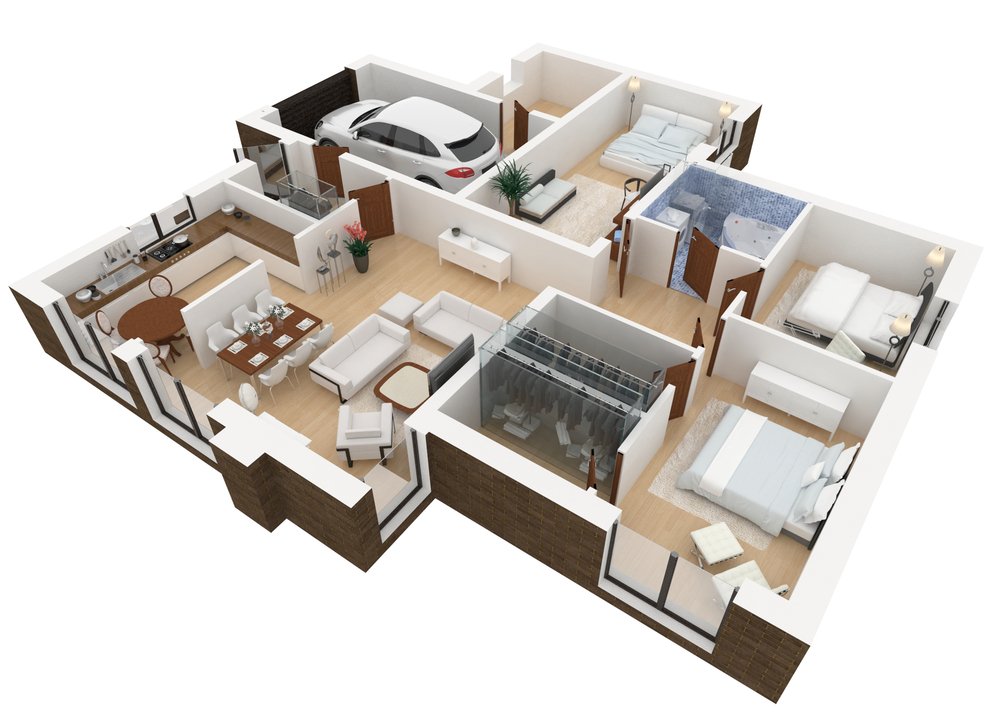The idea of granny flats, popularly known as Accessory Dwelling Units (ADUs), is not new in Australia. In recent years, they have dramatically evolved from functional-only structures to highly aesthetically pleasing, purpose-serving spaces that contribute significantly to the property value. Yet, while we appreciate the evolution in design principles, we can’t help but ask another interesting question: Can we incorporate sustainable design principles into building an eco-friendly granny flat?
The concept of sustainable living is gradually no longer a ‘nice-to-have’ but a ‘must-have’ in contemporary society. As our small way of contributing to the carbon reduction efforts, it is essential to ask ourselves, how can we ensure our granny flats follow a sustainable design approach? What materials should we use? Which architectural features checks the box of modern environmental standards?
In this blog post, we will explore together the idea of creating an eco-friendly granny flat, pinpointing why it matters, what to consider, the pros and cons, and incorporating sustainability in the long run.
Why Sustainability Matters In Your Granny Flat Studio

With issues of climate change and global warming taking center stage in world discussions, the question of sustainability has gradually become an essential aspect of every aspect of life. The reality of designing granny flats offers no exception. By integrating sustainable design principles, not only do you reduce the carbon footprint significantly, but you also ensure the efficient use of resources, all while providing a healthy, productive environment.
Moreover, in a world leaning heavily towards green-energy solutions, creating a sustainable granny flat could potentially increase the value of your property. It could set you apart in the real estate market, making your property a quick sell or rent. Importantly, a green approach results in lower operational and maintenance costs.
What to Consider When Incorporating Sustainability
Embarking on a mission to build a sustainable granny flat studio, the first step is meticulous planning and selecting the right materials. From building the unit’s floor plan to choosing the building materials, every level of construction should be devised benefiting Mother Nature.
A smart location for your granny flat can play a big part in developing a green structure, positioning it in a manner that harnesses natural light, ventilation, or the surrounding landscape’s benefits. Choosing ‘green’ materials—those that are renewable, recyclable, and have a lesser environmental impact—is another critical aspect.
With sustainability also touching on energy efficiency, incorporating features that promote better insulation, natural lighting, and energy-saving devices is vital. This could range from double-glazed windows, solar panels, rainwater tanks to LED lights, all of which significantly lower energy consumption.
Pros and Cons of Incorporating Sustainability
Incorporating sustainable design into your granny flat studio brings with it a host of advantages. Not only does it reduce the negative environmental impact and lower the cost of running the unit, but it also improves indoor air quality as a result of using less harmful materials and promotes a healthier lifestyle.
Equally important to mention are the challenges. Sustainable design might require a considerable initial capital outlay, given the higher upfront costs for sustainable materials and technology. There’s also the time factor. The design and construction process of a sustainable granny flat may take longer than a traditional flat, given the resources and energy involved in the careful planning and execution.
Sustainability: A Long-term Approach

The notion of sustainability in granny flat studio design is not about jumping on the bandwagon or following a trend. Rather, sustainability is a mindset, a long-term approach that gradually pays off. Think of it as creating a legacy for future generations, a testament to your commitment to the environment and all humanity.
Stepping into the realm of sustainable living may seem daunting, but remember, every small step counts. From recycling material to installing an energy-saving bulb, your journey to creating a sustainable granny flat doesn’t have to be grand. Implementing smaller green initiatives can have just as much impact, and over time, contribute to a larger scale change.
Conclusion
The concept of designing a sustainable granny flat studio is a multi-faceted one. More than just a buzzword, it is a way of life that brings with it long-term environmental, economic, and health benefits while adding value to your property.
Creating a sustainable granny flat studio comes with its fair share of challenges, including a higher initial capital outlay and longer construction times. However, incorporating sustainability doesn’t necessarily mean doing it all at once. Small steps like using energy-efficient light bulbs and using reclaimed materials may seem insignificant but go a long way in contributing to the collective effort to preserve the planet.
Designing a granny flat with sustainability in mind goes beyond making an environmental statement—it is about living responsibly, creating a better world for ourselves and future generations.




